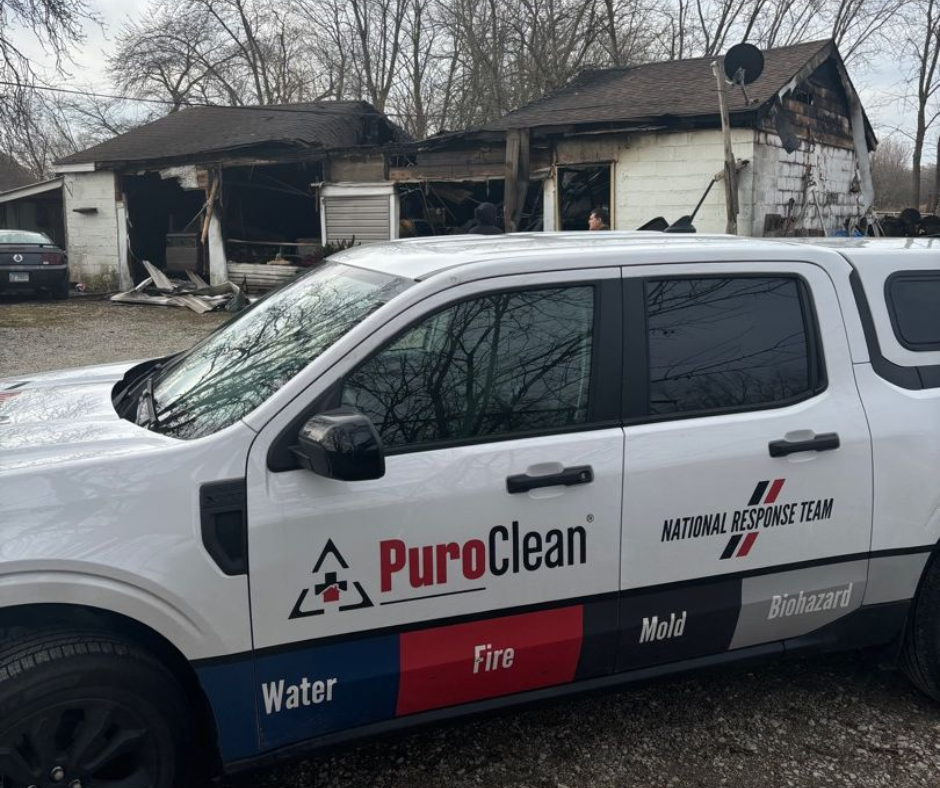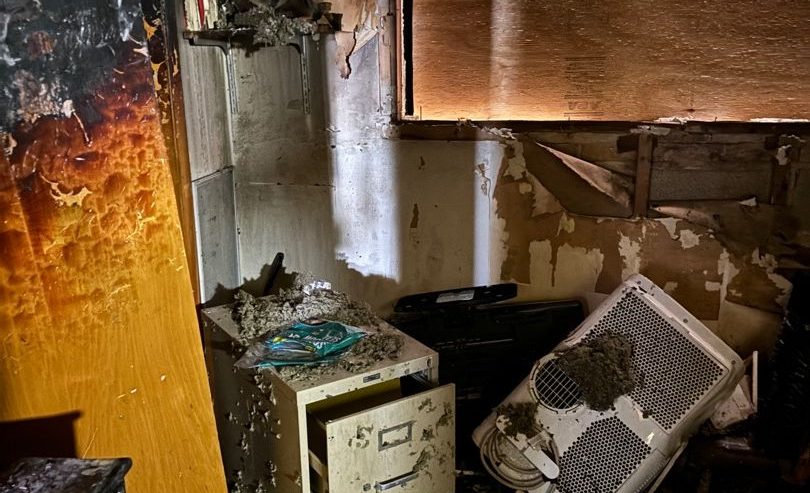Table of Contents
Fire damage can be devastating, but recovery isn’t just about cleanup—it’s about building back stronger, smarter, and safer. In a city as dense and historic as Chicago, fire resilience is more than a trend—it’s a necessity.
At PuroClean of Downtown Chicago, we specialize in restoring residential and commercial properties after fire emergencies. Our approach emphasizes fire resilience, helping property owners reduce long-term risk and improve the integrity of their rebuilt spaces. Whether you’re facing the aftermath of a structural fire or planning future fire protection upgrades, this guide explains how we help clients rebuild with resilience in mind.
What Is Fire Resilience?
Fire resilience refers to a building’s ability to withstand, recover from, and adapt after a fire. It’s not just about fireproofing—it’s about integrating smarter materials, construction methods, and planning into the restoration process.
Key components of fire resilience include:
- Using fire-rated building materials
- Reinforcing structural elements to prevent collapse
- Restoring critical systems (like electrical and HVAC) safely
- Planning layouts to aid emergency response in future events
- Coordinating with code enforcement and fire departments
Our Approach to Fire Resilient Rebuilding
PuroClean of Downtown Chicago combines years of fire restoration experience with an understanding of local codes, materials, and risks. Here’s how we incorporate fire resilience into every project:
1. Thorough Structural Evaluation
Before we begin reconstruction, our team inspects all fire-impacted areas using:
- Infrared thermal imaging to locate hidden hot spots
- Moisture meters to identify water-damaged framing
- Smoke and soot assessments for contamination risks
This diagnostic step is critical in fire resilience. A weakened beam or undetected moisture can compromise future safety or cause mold growth.
2. Removal of Compromised Materials
Not all fire damage is visible. We carefully remove:
- Charred wood, drywall, or flooring
- Insulation affected by smoke or water
- Electrical components exposed to high heat
Our selective demolition helps prevent future fire hazards while making room for safer, updated materials.
3. Use of Fire-Rated and Code-Compliant Materials
Building codes evolve after major fire events. That’s why we prioritize:
- Fire-rated drywall, insulation, and doors
- Upgraded wiring and tamper-resistant outlets
- Non-combustible framing supports where appropriate
These upgrades not only meet local code—they also support long-term fire resilience for residents and tenants.
4. HVAC, Electrical, and Plumbing Restoration
Modern fire resilience requires coordination with licensed trades. We work closely with professionals to:
- Replace ductwork contaminated by smoke
- Inspect and replace damaged wiring
- Address plumbing issues caused by heat or extinguishing efforts
This step ensures your systems are safe, efficient, and aligned with fire resilience best practices.
5. Restoration That Supports Safety and Emergency Planning
Whenever we rebuild a space, we consider how future emergencies might unfold. We help clients:
- Install accessible exits or egress windows
- Add illuminated emergency signs in commercial spaces
- Incorporate smart smoke detectors or monitoring systems
Who Needs Fire Resilience Planning in Chicago?
Due to its high-density housing, historic buildings, and mixed-use developments, Downtown Chicago faces unique risks.
Those who benefit most from our fire resilience services include:
- Condo and apartment buildings: Shared walls and infrastructure increase the risk of damage spread.
- Commercial tenants and landlords: Business continuity depends on building resilience.
- Older homes and brownstones: Outdated materials or wiring may fail in fire conditions.
- New property investors: Rebuilding with resilience ensures code compliance and protects future tenants.
Fire Resilience Is a Community Investment
Investing in a fire-resilient rebuild supports more than your own safety. It reduces:
- Risk of neighboring property damage
- Strain on fire departments during emergencies
- Insurance costs over time
- Environmental impact of repeated reconstruction
According to the National Institute of Building Sciences, every dollar spent on disaster-resistant construction (including fire resilience) saves $4 to $11 in future damages. That makes fire resilience a wise financial decision too.
Why Choose PuroClean of Downtown Chicago?
We know fire restoration inside and out—but we don’t stop at cleanup. Our team brings local expertise and national resources to every project, providing:
- 24/7 emergency fire cleanup
- Smoke and soot removal
- Structural drying and deodorization
- Fire-resistant reconstruction
- Coordination with your insurance provider
- Full restoration project management
View examples of our work and connect with us through our Google Business Profile to see how we’ve helped businesses and homeowners throughout Downtown Chicago.
Our Fire Damage Services Include:
- Emergency board-up and tarping to protect from the elements
- Selective demolition of unstable structures
- Smoke odor removal and air filtration
- Content pack-out and cleaning
- Structural reconstruction with fire-safe materials
- Full insurance documentation and estimates
What to Do After Fire Damage in Downtown Chicago
If you’ve experienced a fire, here’s what we recommend:
- Stay out of the affected area until a professional inspection is completed.
- Contact your insurance provider and document the damage with photos if it’s safe to do so.
- Call PuroClean of Downtown Chicago to begin the mitigation and resilience planning process.
- Don’t start repairs on your own. Improper restoration may void insurance claims or create future hazards.
Need Help Now?
PuroClean of Downtown Chicago is ready to respond 24/7. We’re located in the heart of the city, allowing us to mobilize quickly and begin recovery efforts within hours. Our work doesn’t just repair—we help you rebuild stronger.
Learn more about our fire restoration services.




